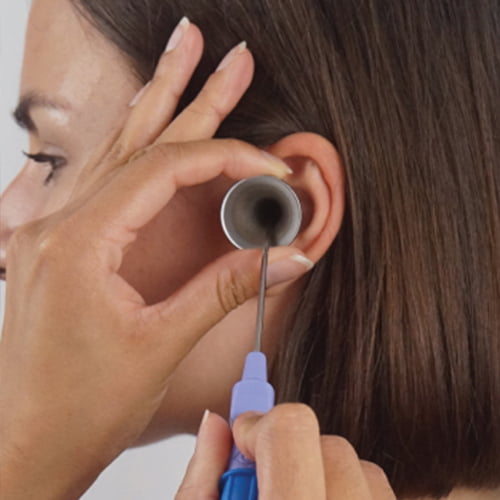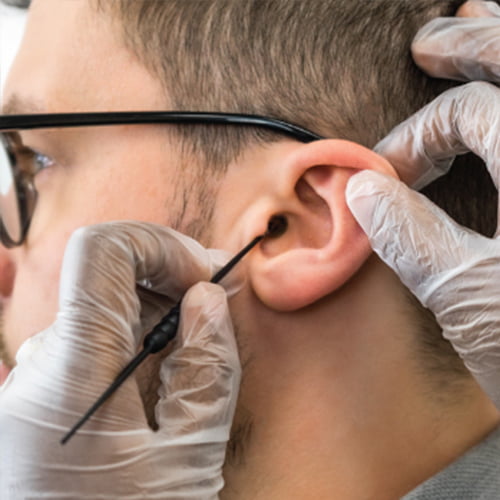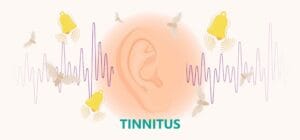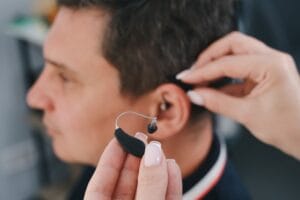
Endoscopic Microsuction Earwax Removal
Experience the safest and most advanced method for earwax removal with endoscopic microsuction.
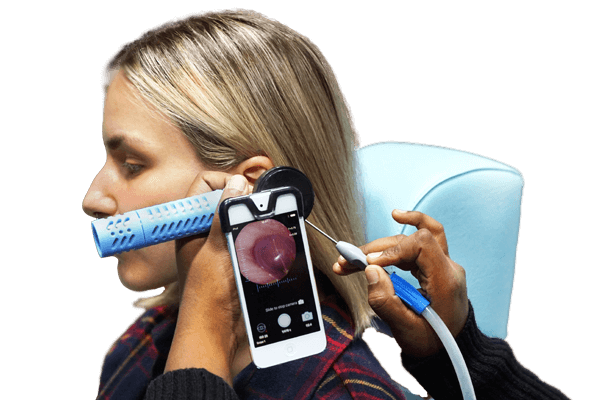
What is Endoscopic
Microsuction?
Endoscopic microsuction is a highly effective method for removing earwax. This technique uses an endoscope, which provides a clear and magnified view of the ear canal, allowing the audiologist to precisely remove earwax with a small suction device. This method combines the precision of microsuction with the enhanced visibility provided by the endoscope.
What to Expect During Your Appointment
Your appointment will start with a discussion about your medical history and a consent form. Our audiologist will examine your ears with an endoscope and show you the inside of your ear on a screen if you wish. We’ll explain the procedure and gently place the suction device into your ear canal to begin the removal process. The procedure typically takes about 30 minutes but can be shorter, depending on the amount of earwax.
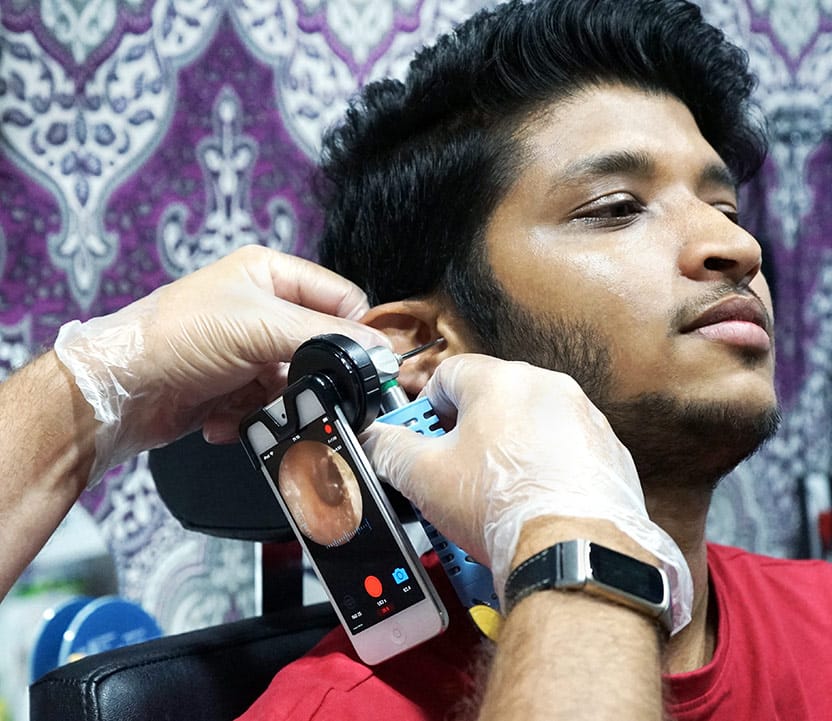
Benefits of Endoscopic Microsuction
Enhanced Visibility: The endoscope provides a clear and magnified view of the ear canal, ensuring precise removal.
Safe and Comfortable: Studies have shown that endoscopic microsuction is quicker, easier, and more comfortable than traditional methods.
Highly Effective: This method efficiently removes earwax, even in difficult cases.
Dry Procedure: Unlike irrigation methods, no water is involved, making it suitable for people with ear infections or perforated eardrums.
Preparing for Your Endoscopic Microsuction Appointment
For best results, we recommend using olive oil drops for three days before your appointment to help soften the wax. This makes it easier to remove the wax completely. However, if you need an emergency appointment and we can fit you in the next day, you can come in straight away without using drops beforehand.
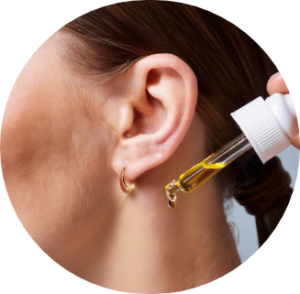
Safety and Side Effects
Endoscopic microsuction is generally safe and painless, but some people may experience mild side effects such as:

Temporary dizziness

Increased sensitivity to sound

Slight discomfort in the ear canal
These side effects usually go away quickly. Our team takes every precaution to minimize risks and ensure your comfort throughout the procedure.
Contact Us
If you have any questions about the procedure or would like to book an appointment, please contact our expert team at 01455 234 600 or click the button below to book online.
Frequently Asked Questions
How does endoscopic microsuction compare to traditional microsuction?
The key difference between endoscopic microsuction and traditional microsuction is the use of a tiny camera, which provides a magnified and illuminated view of the ear canal, whereas regular microsuction relies on a microscope.
Is endoscopic earwax removal painful?
Endoscopic earwax removal is generally not painful. Most people find the procedure comfortable, as it uses a professional earwax suction device with a camera to ensure precision and minimise discomfort. However, some individuals might experience a mild sensation of pressure during the procedure.
Can you go deaf from microsuction?
When performed by a trained professional, microsuction is safe and unlikely to cause hearing loss. However, there are minimal risks involved, such as potential damage to the eardrum or the ear canal if the procedure is not done correctly. Our audiologists are highly trained in earwax removal and use professional microsuction machines, ensuring your hearing remains protected.
Are earwax removal endoscopes safe?
Yes, earwax removal endoscopes, like the ones used in endoscopic microsuction, are safe when operated by trained professionals. These devices provide a clear view of the ear canal, allowing for precise and controlled wax removal.
What are the benefits of using an endoscope during microsuction?
Using an endoscope during microsuction provides several benefits. The endoscope offers a magnified and illuminated view of the ear canal, allowing the audiologist to see the wax and ear structures clearly. This enhanced visibility ensures precise and thorough removal of earwax, reduces the risk of injury, and makes the procedure more efficient. The detailed view also allows for better assessment and management of any underlying ear conditions.

